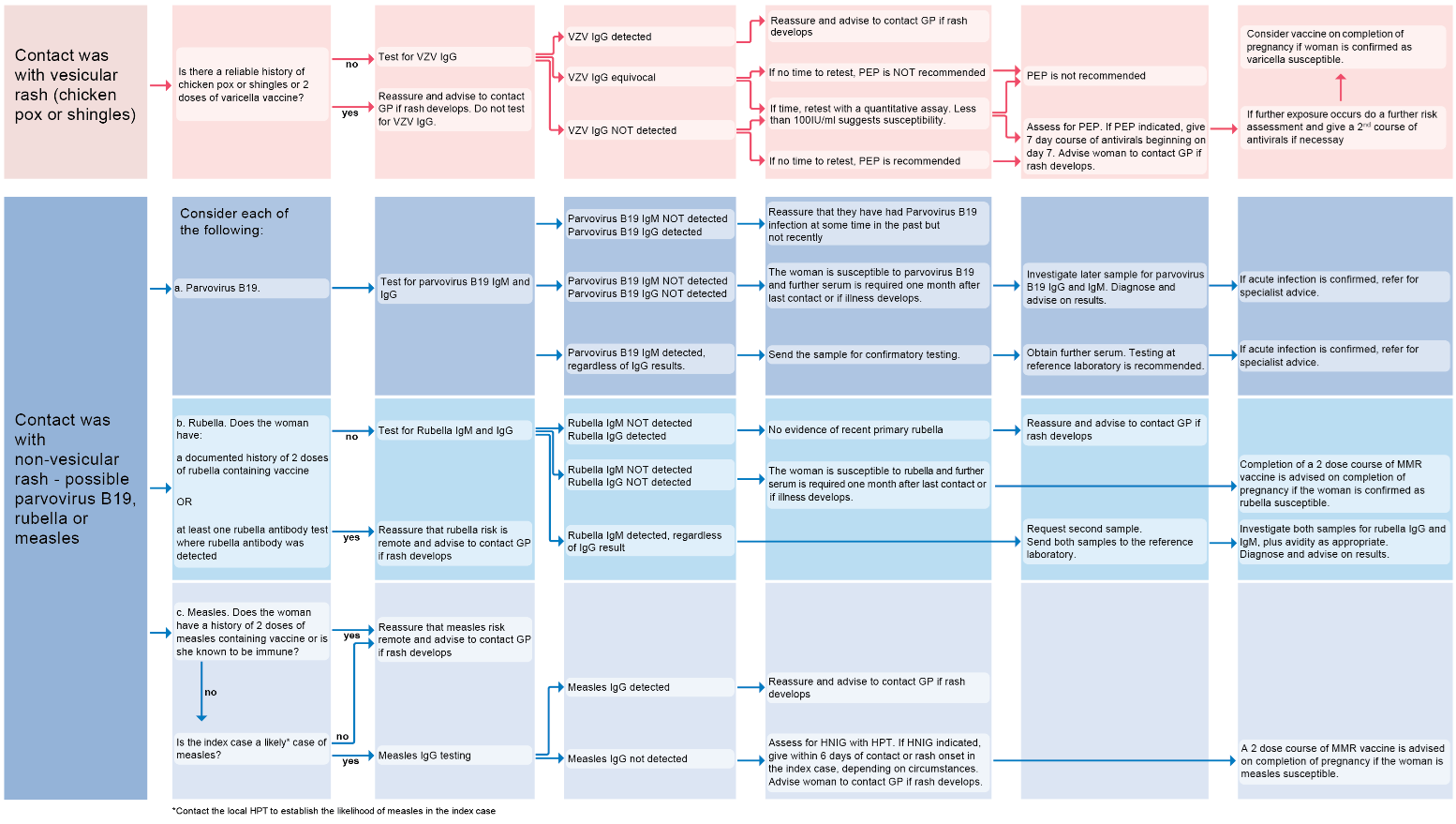Slapped cheek disease and pregnancy
- erythrovirus (formerly parvovirus) type B19 is the cause of 'fifth disease' (also known as slapped cheek disease and erythema infectiosum)
- between 50-60% of adults have been infected previously with parvovirus but the infection has been asymptomatic
- infection with erythrovirus B19 is uncommon in pregnancy
- the majority pregnant women with parvovirus infection have normal, healthy babies
- but there has been fetal death and occasional hydrops fetalis associated with the infection (1)
- there is no routine screening test for parvovirus B19 in pregnancy
- the risk of intrauterine transmission increases with gestational age
- < 4 weeks - 0%
- 5-16 weeks - 15%
- > 16 weeks - 25-70% (2)
- there is a risk of fetal death in about 10% of cases
- adverse fetal/neonatal outcomes associated with fetal infection include:
- risk of adverse fetal/neonatal outcomes vary with respect to gestational age at the time of infection with parvovirus:
- if parvovirus infection occurs in the first 20 weeks of pregnancy, the risk of miscarriage rises from the 5% that a woman who is not infected with the virus has, to 15%
- if parvovirus infection occurs in weeks 9-20, as well as the 15% risk of a miscarriage, there is also a 3% risk your baby will develop non-immune hydrops fetalis
- hydrops fetalis is fatal in about 50% of cases
- other possible of parvovirus infection include growth retardation, myocarditis/infarction, meconium peritonitis, placentomegaly, oedema, anaemia, rashes, thrombocytopaenia, leucopenia and respiratory insufficiency
- fetal risk is greatest in the second trimester
- risk of adverse fetal/neonatal outcomes vary with respect to gestational age at the time of infection with parvovirus:
- usually these adverse effects tend to occur some 3-5 weeks after the onset of maternal infection (can be later too) (2)
- if possible parvovirus infection has occurred in pregnency then:
- check parvovirus serology
- if positive test in the first 20 weeks of pregnancy, then regular ultrasound scans are indicated to monitor fetal growth and development - if fetal hydrops develops then intrauterine transfusion may be indicated
- adverse fetal/neonatal outcomes associated with fetal infection include:
- there is an approximate 1% risk of congenital abnormality (1)
If considering an infectious cause for the development of the rash in pregnancy. A flowchart summarising contact with vesicular or non-vesicular rash (5):

Reference:
- (1) Health Protection Agency (HPA) 2008. General information on parvovirus: parvovirus B19 (Slapped cheek syndrome, Fifth disease or Erythema infectiosum) – general information
- (2) Morgan-Capner P et al. Guidelines on the management of, and exposure to, rash illness in pregnancy (including consideration of relevant antibody screening programmes in pregnancy). Commun Dis Public Health. 2002;5(1):59-71
- (3) Miller E (1998). Br J Obs Gyn, 105, 174.
- (4) CKS (2007). Pregnancy and parvovirus B19 (‘slapped cheek’ or fifth disease).
- (5) UK Health Security Agency (July 2024). Guidance on the investigation, diagnosis and management of viral illness (plus syphilis), or exposure to viral rash illness, in pregnancy
Related pages
Create an account to add page annotations
Annotations allow you to add information to this page that would be handy to have on hand during a consultation. E.g. a website or number. This information will always show when you visit this page.